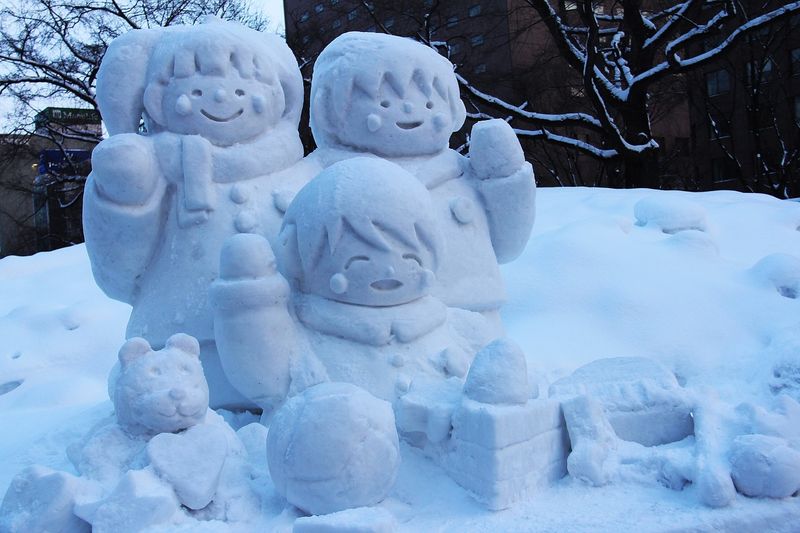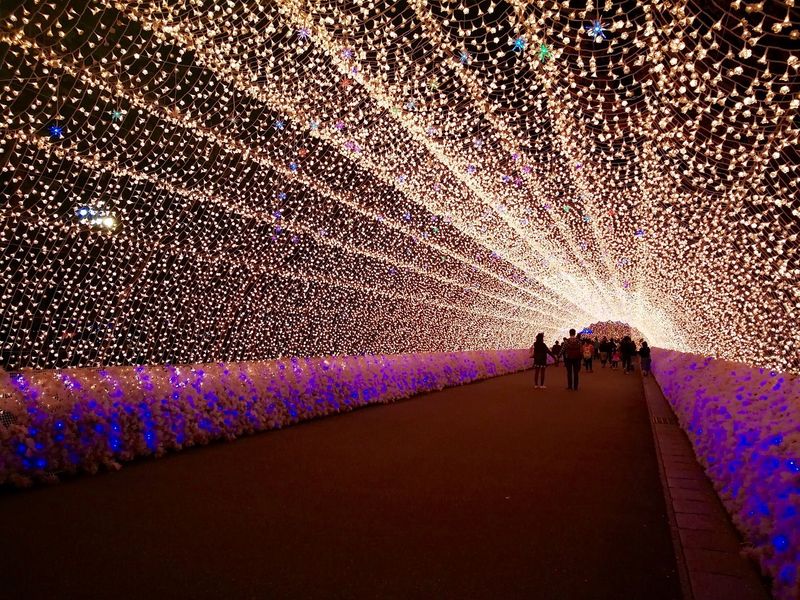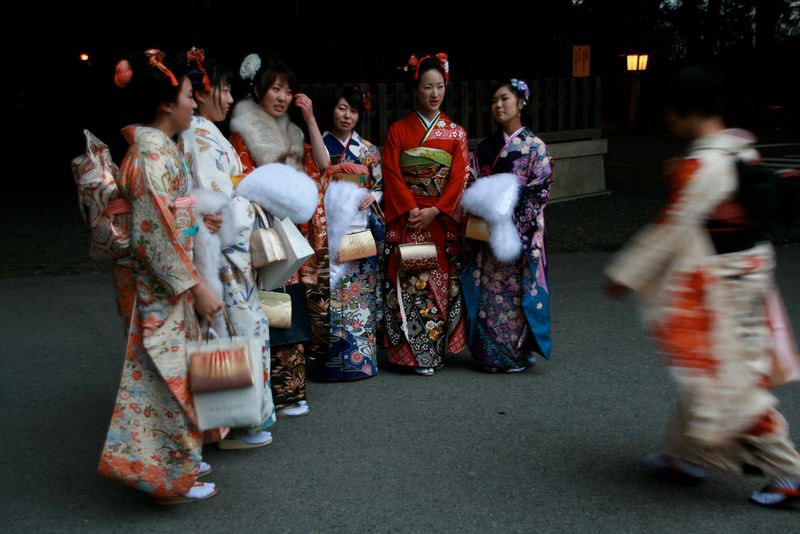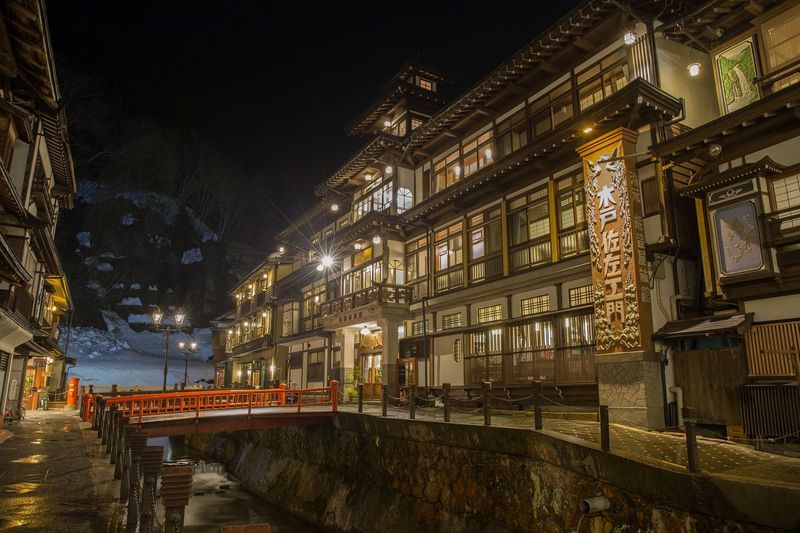Jan 4, 2018
How living in Japan softens post-festive season blues
While the post-Christmas / New Year festive season perhaps marks the beginning of the bleakest time of year for many people around the world, January to March offers plenty of reasons for the foreigner living in Japan to be positive.
It’s probably a truism for many countries around the world, particularly those in the north-hemisphere West, that early January marks the beginning of a stretch of year that most people simply endure rather than enjoy. In fact, one might venture to say that the first day of work after Christmas and New Year celebrations is, for many, the singularly most awful day of the year, from which the seemingly vast and barren stretch of January through to the end of March is bleak to the point of making folks cry.
It’s perhaps one of the perks of living in Japan then, that the post-festive season come down isn’t nearly as severely felt as it might be back home. Perhaps it isn’t felt at all, or it is at least tempered by life / culture in Japan factors that make the prospect of January to March less overwhelming or maybe even a time of year to look forward to!
*NB: If this post smacks of the "western centric" and "middle-class problems," this is understood (although not intentional) but hopefully, at its core, it will serve to "serve up" some suggestions of things to get involved with and think about in the coming months here in Japan.
Snow Festivals (Yuki Matsuri)

The Sapporo Yuki Matsuri (さっぽろ雪まつり) tends to grab the headlines when it comes to “snow festivals” in Japan but February marks the opening of many such “snow events” held across the country, although most of them, for obvious climatic reasons, tend to take place north of Tokyo.
From the gigantic snow sculptures of the Sapporo Yuki Matsuri (as well as the Iwate Yuki Matsuri) to the haunting imagery of a snow-covered castle warmly lit at night (think castles in Hirosaki, Aizu-Takamatsu), snow festivals in Japan run the gamut of the gaudy and outrageous together with the impossibly romantic.
Whatever one’s taste in snow, however, the lamp lit slopes of Japan’s mountains, and the shared experience of the “event” pack in enough magic and communal well-wishing as to make Christmas and New Year distant (although still warm) memories.
Note: Most snow festivals in Japan are done and dusted in February, although one or two may stick around until early March.
The lights are still on

While Christmas illuminations around the world will be packed up and stowed away for next year by January 6 (officially the day after the last day of Christmas) leaving a landscape that is as barren as it is back-to-work brutal, Japan’s illuminations linger, in some cases, until March. The key distinction being that in Japan, the dazzling LEDs are “winter illuminations” not “Christmas lights”.
OK, so illuminations in Japan blur the boundaries of Christmas and something else (as well as that which is good taste and that which isn’t) but really who cares when it means that the festive vibes are seamlessly transitioned into the next big event (Valentine’s Day) or, if one doubts this, are continued through until nature starts leaving on her lights for a little longer.
It’s only a few days until the next holiday

Imagine if that first day of work after Christmas / New Year was tempered by the almost immediate prospect of a long weekend rather than a three month slog until the weather picks up. Such is the case here in Japan.
While workers in the West lug themselves into work on January 2nd (carrying with them still toxic hangovers from New Year’s Eve) their counterparts in Japan kick things off typically (well, this year at least) on January 4th with one eye (and half of the other) on the prospect of the following weekend. A weekend which comes with Coming-of-age Day (Seijin no Hi) crowbarred onto the end of it to make three days without work.
“Coming-of-age Day,” you say? Yes, but who cares? It might as well be as arbitrary as, say, “Mountain Day” (the latest addition to a catalogue of random days off in Japan). The point is, there’s no work and the timing is perfectly suited to that blinkered attitude of, “Let’s just get through the next couple of days.”
Onsen have never seemed like a better idea

The foreigner in Japan sceptical about shedding their clothes in front of a bunch of strangers would do well to loosen up a bit and get with the country’s onsen culture. Especially at this time of year.
It’s when the snow falls that Japan’s onsen resorts really come into their own. And most of the snow falls in Japan between January and March. During this time onsen towns tucked into the valleys and clinging to the mountainsides appear so hauntingly beautiful in the snow as to be somehow not real. This is Japan at its most Studio Ghibli and it has to be seen, even though doing so doesn’t make it any less hard to believe.
It’s a little off topic but a soak in one of Japan’s scolding hot springs is also about the only time one ever gets to feel truly warm during the winters here. This is not so much about the climate, although the Japanese winter can really bite, as it is a reflection of just how crap the heating is in this nation’s homes. Put simply, one can never seem to get warm enough unless, oddly, you get out of your clothes … and into an onsen … quickly.
With three national holidays to choose from between New Year (not including New Year’s Day) and the end of March, as well as the staggering number of accessible onsen resorts / towns in Japan, setting up, looking forward to, and enjoying a hot spring weekend is a great post-festive season indulgence.
What is there to come down from?
Let’s be honest, the festive season in Japan isn’t really that festive. Is it? Christmas in Japan is a commercial sham (not to mention a bit weird and lonely for the Christmas-celebrating foreigner) and New Year (which is generally a let down back home anyway) is a bit staid here in Japan with few fireworks, decorations that lack glitter and shine, and a vibe that is more ‘eating in front of the TV with the family’ than it is ‘epic night out on the tiles’. Consequently the foreigner living in Japan has far less frivolity and gratuitous indulgence to come down from.
This, and the above mentioned illuminations, helps add a bit of consistency to the December to January transition making it much less of a bipolar nightmare than it might be back home.
There’s light at the end of the tunnel, guaranteed
The geography here might be getting a little specific but maybe there are others out there who can share in this expat’s sentiment - that one of the great horrors of the January to March stretch back home is that, even once March is done, there can be no guarantees of the weather picking up and a sense of spring / summer beginning to set in. Light at the end of the tunnel, if you will.
Here in Japan you could set your watch by the seasons. Even if January to March were starved of events and other selling points you can take solace in the fact (yes, “fact”) that as soon as March has buggered off, weather, warmth, and all-round lighter, happier vibes will increase exponentially. And they’ll be bringing Golden Week with them. To put it another way - there is emphatically light at the end of the tunnel.
We used the term “consistency” in one of our factors regarding a lack of post-festive season come down in Japan. This is perhaps a key term. Japan is obsessed with the seasons - as chances to celebrate tradition, make lifestyle changes, and exploit commercial opportunities - and it can seem like there is always something to celebrate here, or at least a theme that guides people through one period and straight into another, however short or long. Consequently, living in Japan, there are never those barren periods that we might experience back home. Those times when there seems to be nothing to talk about other than work and the weather.
Perhaps this only serves to undermine any potential highs we might otherwise have felt at the coming of a special event. In Japan we exist in a constant state of “high,” albeit one that is largely dished out by us spending money on something seasonal. Whether or not this is a good thing, this expat can’t be sure but it certainly softens those post-festive season, back-to-work blows.
Got anything you’re looking forward to in this January to March period in Japan? Any post-festive season hangover cures other foreigners living in Japan should know about? Let us know in the comments.
Further reading …
Winter illuminations in Japan 2017 - 2018: The classy ones!
What’s Christmas like in Japan?
See us on …
Twitter and Facebook: @citycostjapan
Images
Coming of Age Day: Gene Jackson Flickr License



0 Comments